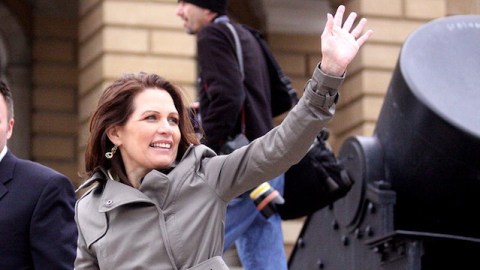Where Does the Tea Party Come From?

Political scientists David Campbell and Robert Putnam published an op-ed in The New York Times this week arguing that the common idea about where the Tea Party comes from and who they are is wrong.
Campbell and Putnam interviewed a sample of 3,000 people in 2006 as part of a project studying political attitudes in America. Five years later they returned to their sample to see what people who supported the Tea Party said before the Tea Party even existed. Campbell and Putnam found Tea Party is not for the most part composed of non-partisan political newcomers who were radicalized by the poor economy and the expansion of government. In fact, Tea Party supporters were for the most part activist Republicans well before both the financial crisis and before Obama’s election. Campbell and Putnam found that Republican affiliation was actually the single strongest predictor of Tea Party support, and that Tea Party supporters were more likely than other people to have lobbied their public officials before.
Campbell and Putnam also found that concerns in 2006 about the economy and the size of government are not strongly correlated with Tea Party affiliation today. Today’s Tea Party supporters are disproportionately white social conservatives, who, Campbell and Putnam say, “had a low regard for immigrants and blacks long before Barack Obama was president, and still do.” And while Tea Party leaders say their main concern is limiting the size of government, Campbell and Putnam found that the cause that really unites rank-and-file Tea Partiers is a desire for more religion in government. Campbell and Putnam argue that their public devotion—not their ideas about taxes—explains the appeal of figures like Rep. Michele Bachmann (R-MN) and Texas governor Rick Perry to the Tea Party.
These are not mainstream views. Most Americans don’t want a more openly religious government. As Campbell and Putnam point out, public opinion has been turning against the Tea Party. The number of Americans who say they have an unfavorable opinion of the Tea Party has more than doubled in just over a year to 40%, while the number of people who say they have a favorable opinion has stayed constant around 20%. And, as Greg Sargent reports, support for the Tea Party peaked around the 2010 midterm elections and has been waning ever since. Campbell and Putnam found that the Tea Party was now even less popular in the U.S. than Muslims and atheists, who are both frequently the target of Tea Party attacks.
In spite of its increasing unpopularity, the Tea Party has more influence over Congress and the Republican Party than ever. That’s a tribute to the effectiveness of Tea Party organizers. But if the Tea Party agenda becomes the dominant party line, it may also be a serious political liability for Republicans in the upcoming national election.
Follow me on Twitter: @rdeneufville
Photo credit: Gage Skidmore




